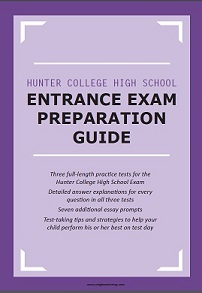Cheat Sheet for the New Digital SAT: Your Ultimate Guide
/The SAT has long been a cornerstone of college admissions, and the recent transition to a digital format brings a new set of challenges and opportunities for test-takers. To help you navigate this updated exam, we've compiled a comprehensive cheat sheet covering everything you need to know about the New Digital SAT. From understanding its structure to mastering key strategies, this guide will prepare you for success.
Understanding the Structure
The New Digital SAT consists of two primary sections: Reading and Writing, and Math. Each section is divided into two modules, making a total of four modules you’ll need to complete. The entire test takes 2 hours and 14 minutes, significantly shorter than the traditional version. This reduction in time is designed to decrease fatigue and streamline the testing process.
Adaptive Testing Explained
One of the most significant changes in the digital SAT is its adaptive nature. The first module of each section includes a mix of easy, medium, and difficult questions. Your performance in the first module determines the difficulty level of the second module. If you perform well, the questions will become more challenging; if not, they will be easier. This adaptive approach aims to provide a more personalized and accurate assessment of your abilities.
Reading and Writing Section
The Reading and Writing section combines reading comprehension and grammar into the same modules. You’ll encounter shorter passages, around 150 words each, with one question per passage. This format requires you to quickly grasp the main idea, analyze the text, and apply your understanding of English conventions. Practice skimming techniques and focus on identifying key points efficiently.
Math Section Breakdown
The Math section covers a range of topics, including algebra, geometry, trigonometry, and data analysis. Unlike the old SAT, the digital version allows you to use a built-in graphing calculator throughout both modules. This calculator, based on Desmos software, offers advanced functionalities that can help you solve complex problems more quickly. Make sure you practice using this tool to maximize your efficiency during the test.
Time Management Tips
Effective time management is crucial for the digital SAT. Each Reading and Writing question has approximately 1 minute and 11 seconds allocated, while each Math question allows about 1 minute and 35 seconds. Practice with timed tests to get comfortable with the pacing and develop strategies to quickly move through questions without getting stuck.
Leveraging the Built-In Calculator
The digital SAT’s built-in graphing calculator is a powerful tool. Familiarize yourself with its features, such as graphing equations, solving algebraic problems, and analyzing data sets. Regular practice with this calculator will help you become adept at using it, allowing you to save time and reduce errors on test day. (Be sure to double-check that, if you bring your own graphing caclulator, your model is on the approved list for graphing calculators allowed in SAT.
Practice Adaptive Testing
Given the adaptive nature of the digital SAT, practicing with adaptive tests can be highly beneficial. These tests will help you get used to the shifting difficulty levels and develop strategies for handling varying question complexities. Look for online resources or SAT prep platforms that offer adaptive practice tests to simulate the actual exam experience.
Focus on Weak Areas
Identify your strengths and weaknesses through practice tests and targeted study sessions. Spend more time improving in areas where you struggle, whether it's complex math problems, grammar rules, or reading comprehension. Addressing these weaknesses will help you boost your overall score and feel more confident on test day.
Use Official Resources
The College Board provides a wealth of official practice materials, including sample questions and full-length practice tests that mirror the digital SAT. Utilize these resources to ensure you’re studying relevant content and familiarizing yourself with the test’s format. Official materials are the most reliable source for understanding what to expect.
Test Day Preparation
On test day, make sure your device is fully charged and you have a backup power source. Arrive early to avoid any last-minute stress. Ensure you’re familiar with the test interface and have practiced using the digital tools provided. Stay calm, manage your time effectively, and remember to answer every question, as there’s no penalty for guessing.
Overall, the transition to the New Digital SAT represents a significant change, but with the right preparation, you can navigate it successfully. Understanding the structure, leveraging the built-in tools, practicing adaptive testing, and focusing on your weak areas are all key strategies to boost your performance. Use official resources and develop a solid time management plan to ensure you’re ready for test day. With this cheat sheet, you’re well on your way to conquering the digital SAT and achieving your best possible score. Good luck!
SAT TEST PREP | ARE YOU CONSIDERING SAT TEST PREP?
Preparation for the SAT does not have to be daunting and exasperating; instead, it can represent an important opportunity along a student’s path to learning mastery. Indeed, the perspectives and abilities acquired during preparation can be transformative and last a lifetime.
Our two-track approach to mastering content and improving test-taking skills means that students will not only thoroughly understand the fundamental concepts and skills tested by the SAT, but they will also excel in using essential techniques to improve attitude, endurance and focus. Our students hone their independent thinking skills while developing a resilient mindset so they can perform on test day in a powerful, resourceful, creative and calm manner. Each student in our program receives the undivided attention and expertise of a dynamic and experienced coach who provides the framework to support each student on his unique path to becoming a master learner.
Please call 917.287.7927 now for a complimentary consultation to discuss how Origins Tutoring can help your child achieve his or her personal best on the SAT.


